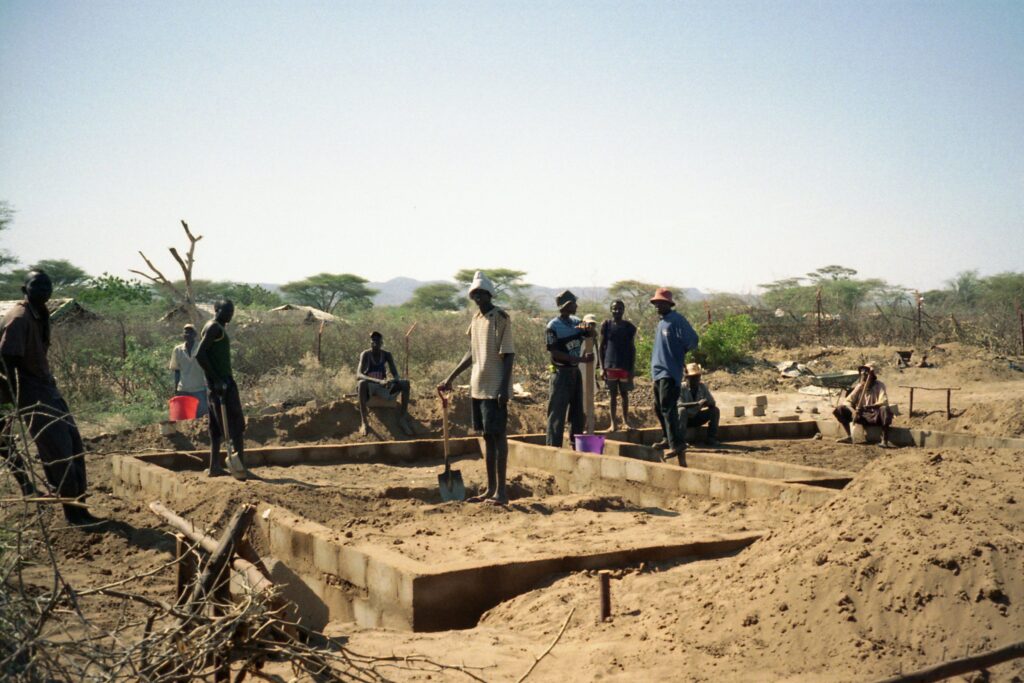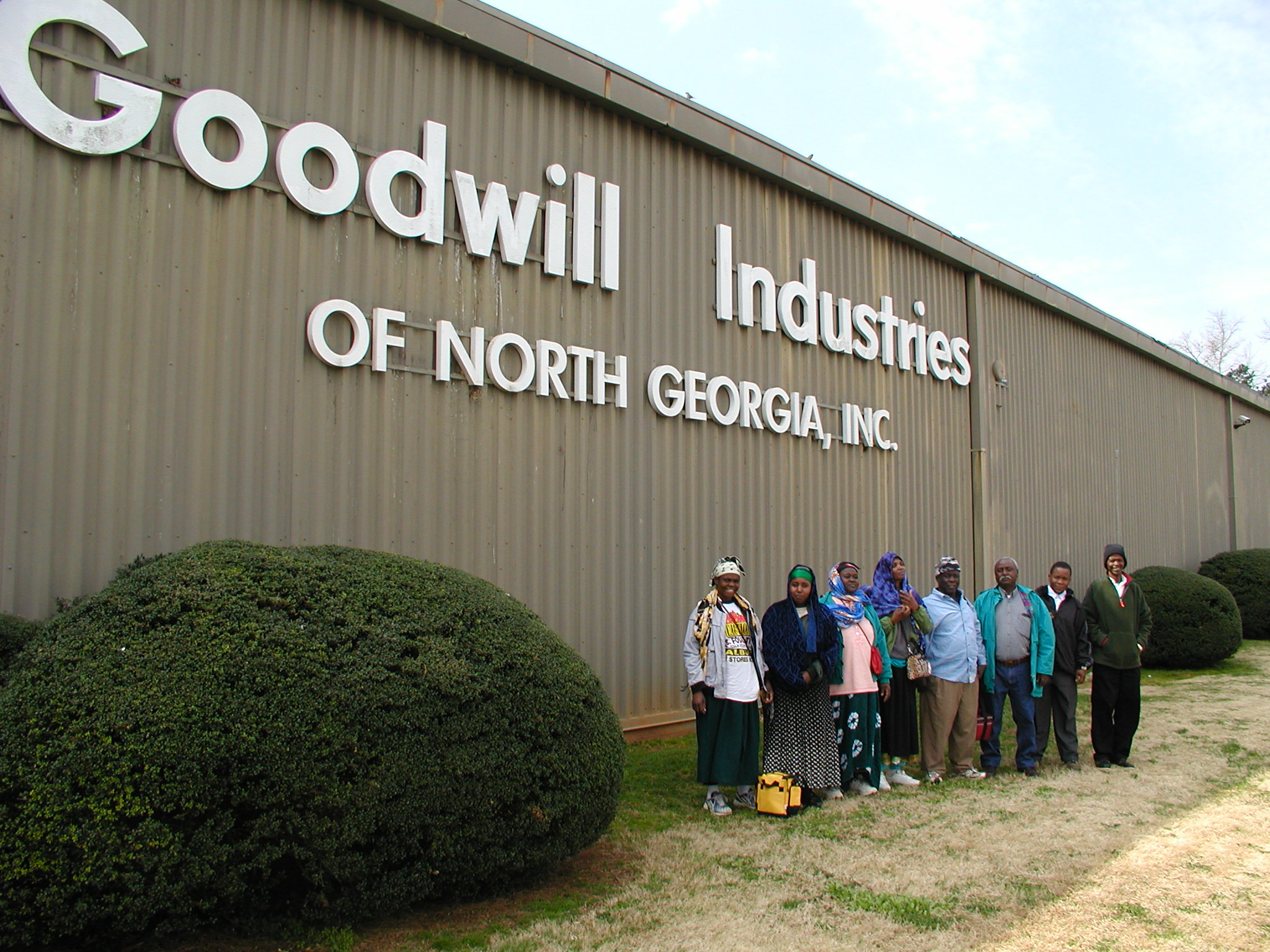Somali Bantu Refugee Resettlement:
From Kakuma to Atlanta
(2003-2005)
Menu
Jobs
Whether trying to get a little extra money to survive in the camp or needing a regular income to pay rent in the US, the job search is definitely a challenge for refugees and a focus for the agencies helping them.
The Somali Bantu were almost all entirely farmers and, having fled to refugee camps in a desert, had no outlet for this work. (Actually, few residents of a refugee camp find any kind of work due to the restrictive nature of the setting and hostility of the host commmunity.) In Kakuma, projects occasionally come up that are willing to hire a few refugees but the Somali Bantu as the newer of the groups without established connections did not have much access to these.

